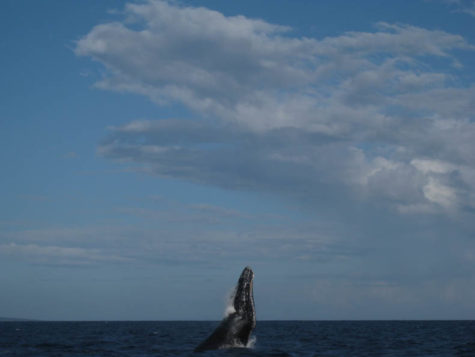To assert one’s humanity is to make choices, even when that choice is to die, says Jenny. “When the time was right, the woman nodded to her doctor, who deactivated the pacemaker that was pumping blood to her heart. The woman died quietly with friends close, exactly the way she’d intended.”
Ann finds the connection between history and storytelling in the Native American accounts of tsunamis, passed down the generations. Then she consults historians about the narrative enterprise. “The proper arraying up of evidence, with narrative devices, in stories about the past—this is how we make meaning.”
Helen feels that Moby Dick is misunderstood. It’s a book about whales, not about manly feelings. “The narrator comes down confidently on the fish side of the fish-or-not debate, which is not how we divide up animals these days, but hey, categories are fuzzy.”
Craig makes films about the rare remaining wilderness regions that remind us humans are not all there is. “Billions of butterfly wings flapping at once changes the way air moves, the way clouds gather and part. Countless voices can move this human machine, can give it a heart.”
Panama’s Gatun Lake plays host to an invasive fish. Ecologists have returned to replicate a 50-year-old study of the species’ introduction. Turns out it’s permanent. “As a voracious hunter, the peacock bass had easy access to all the prey species that never co-evolved with something that would chase them.”
Photo: Helen Fields
